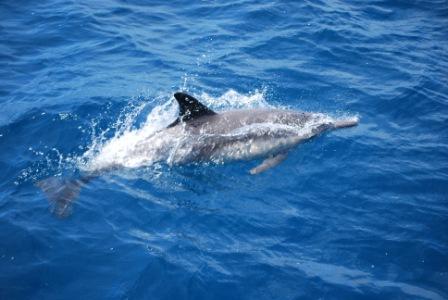
Common dolphin racing along
Another World Oceans Day has come and gone. (It was yesterday, June 8th, in case you missed it!) And I can’t stop thinking about an article I read yesterday titled “Goodbye Holocene, hello Anthropocene.”
The article discusses how humans have managed to make such an impressively destructive impact on planet earth that we are transitioning into a new geological epoch called Anthropocene, the age of man. Potentially marking the end of the Holocene, which started approximately 12,000 years ago. According to the article by Mike Lee, this term was coined in 2000 by former Scripps researcher Paul Crutzen, a Nobel Prize-winning atmospheric scientist.
But Anthropocene is not an official term yet. In fact, the article contains a great little anecdote. From the time the term Holocene was first proposed in 1867, more than 100 years passed until it was finally accepted by the U.S. Commission on Stratigraphic Nomenclature in 1969. So it could be awhile before Anthropocene becomes a legit geological epoch.
In the meantime, the evidence for Anthropocene is everywhere. We used to think the oceans were limitless, now we know they are not. I’m having flashbacks to the American Cetacean Society (ACS) conference I attended last fall, where one talk after another discussed human impacts on marine life. Ships striking endangered blue whales, gillnets drowning vaquitas the most endangered marine mammal in the world, overfishing, toxic amounts of chemicals found in false killer whales, dolphin deaths from the Gulf oil spill and on and on.
So I leave you with this thought from the ACS conference summary* I wrote describing sentiments shared by conference participants: We all agreed on one thing, we can’t give up despite the obstacles. Cetaceans** are our passion, but also our future, their success is linked with ours, by letting them down we only hurt ourselves.
*For the full ACS conference summary click here.
**Cetacea is the scientific order including whales, dolphins and porpoises, aka cetaceans.
Leave a Reply